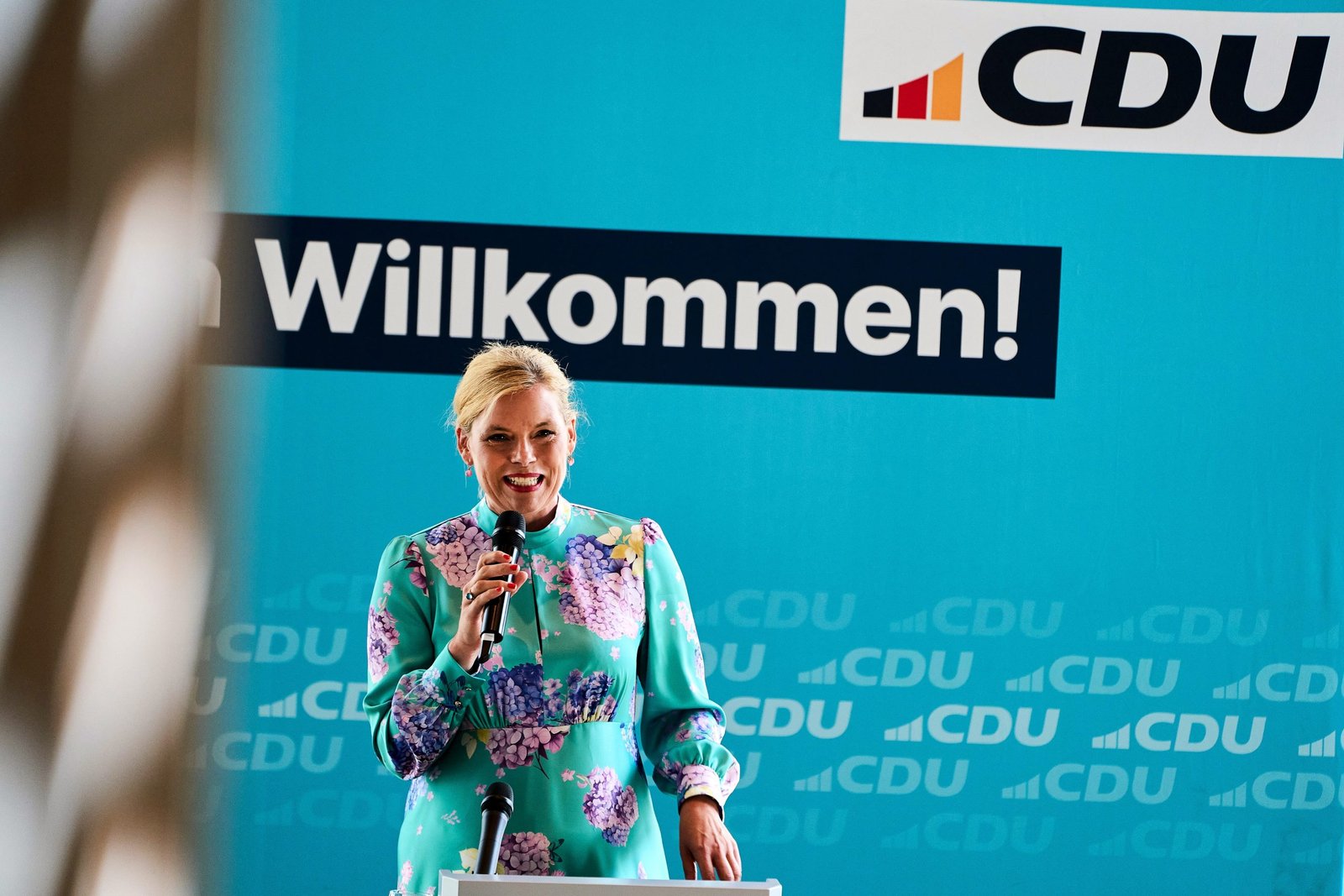BERLIN – Few public figures are as blissfully anonymous in German public life as the president of the Bundestag, the country’s parliament.
And then Julia Klöckner showed up. Just three months into her tenure, Klöckner is well on her way to becoming the most polarising parliamentary leader in decades, if not ever.
The president of the German Bundestag may formally rank as the country’s number two in the constitutional order – ahead of the chancellor and behind the federal president – but the role was designed to be low profile, one focused more on parliamentary procedure than personality.
Parliamentary rules require the person guiding parliamentary sessions to be “impartial” and “fair”, safeguarding “dignity” and “order” rather than courting the spotlight.
Klöckner is not one to adhere to convention, however.
Critics see the former agriculture minister and close ally of Chancellor Friedrich Merz as a part of a Christian Democratic wing that is looking to nudge Germany’s institutions to the right.
The latest flashpoint came on Monday when Klöckner attended a CDU summer party in her home state of Rhineland-Palatinate, hosted at the premises of a med-tech company whose billionaire owner bankrolls Nius, a rising right-wing news platform often compared to Fox News.
The outlet is known for railing against Germany’s Greens and the ‘woke left’ and is regularly accused by its targets of bias and flouting journalistic standards. In recent weeks, Nius’s aggressive coverage about a Social Democratic judicial pick for Germany’s constitutional court helped galvanise a right-wing campaign that ultimately derailed the judge’s nomination.
Klöckner’s presence at the celebration in her home region prompted a rebuke from her party’s coalition partner, the Social Democrats (SPD). SPD parliamentary leader Matthias Miersch said Klöckner owed the public an explanation, given the “special responsibility of her office.”
Unfazed, the president has only doubled down. In a speech at the event, she portrayed her attendance as legitimate within the bounds of the diversity of opinions. She described Nius as the right-wing equivalent of taz, a left-wing German daily rooted in the antiestablishment movements of the 1970s that is today read by many urban elites.
From wine to headline
Klöckner has a history of standing out in Germany’s sober politics business with her pugnacious style and a notable penchant for glitz and exotic outfits.
The daughter of a winemaker, Klöckner is still sometimes belittled for serving as German Wine Queen in the 1990s, a marketing ambassador for the wine industry.
She has consistently drawn tabloid attention, from her dramatic 17-kilo weight loss to a new relationship with a prominent television host. The debate over the colourful €400 Marc Cain dress she wore at the CDU summer party underscored how much her lifestyle competes with her politics for attention.
And Klöckner plays along. Her social media channels alternate between influencer-style videos of her poodle crossbreed and Instagram stories that praise Merz for “destroying” a news anchor in an interview.
Despite owing her rise to centrist Angela Merkel, under whom she served as agriculture minister, Klöckner has consistently cultivated a right-leaning political profile. She pushed for harsher migration policies and demanded a burka ban after Merkel opened Germany to millions of refugees from the Muslim countries.
The fading public attention after the CDU fell into opposition in 2021 marked a low point for Klöckner. At last year’s CDU party conference, she was seen eagerly handing out popcorn to journalists working at the press desks in an obvious bid for attention.
But her open support for the repeated leadership bids of fellow conservative Friedrich Merz ultimately paid off. He rewarded her with the Bundestag presidency after he led the CDU to victory in national elections earlier this year.
Of flags and fights
Since then, Klöckner has returned to courting controversy.
One of her first moves was to ban the rainbow flag from flying on parliament’s premises during Berlin’s annual Pride parade, while also blocking the Bundestag’s queer staff network from joining the march in an official capacity.
Klöckner justified the move with reference to the parliament’s neutrality, but political rivals accused her of abusing the concept as cover for right-wing cultural battles.
While she has been strict with far-right Alternative für Deutschland (AfD) lawmakers, she has particularly clashed with the far-left party Die Linke, once ejecting an MP for wearing a T-shirt reading ‘Palestine.’
After she endorsed Nius at Monday’s CDU event, The Left called for Klöckner’s resignation, while others questioned her motives.
“I wonder whether the Bundestag president is as unfamiliar with the German media landscape as her statement suggests, or whether she is pursuing a political agenda by pushing the acclaimed taz into the far-left corner,” the chair of the German Journalists Association, Mika Beuster, told a German public broadcaster.
The CDU is standing by Klöckner, however, with senior officials dismissing the controversy as a transparent attempt by journalists to generate a bit of news during the dog days of summer.
Perhaps. Yet for a post designed to let others take centre stage, the Bundestag’s president has rarely made generating headlines so easy.
(mm)





